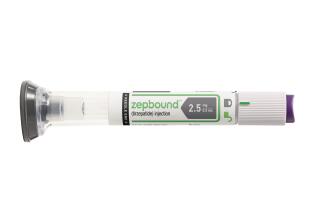FDA Approves New Use for Pfizer’s Zoloft
- Share via
Pfizer Inc. became the latest drug company to broaden the uses for one of its mature-patent medicines Monday when it received Food and Drug Administration approval to market its anti-depression drug Zoloft as a treatment for a severe form of premenstrual syndrome known as PMDD.
Pfizer’s push to sell an antidepressant for premenstrual dysphoric disorder follows a similar successful effort last year by Eli Lilly & Co., which markets a variation of the antidepressant Prozac under the name Serafem.
As their profits get squeezed by competition from lower-cost generic drugs, the big pharmaceutical companies are seeking as many FDA-sanctioned uses as possible for their most successful drugs, whether or not they still have patent protection for them.
But analysts say this tactic seldom produces more than a slight boost in sales for the drugs, and critics say too many drugs are being pushed for too many questionable uses.
PMDD is characterized by intense emotional and physical symptoms that occur during the time between ovulation and menstruation and is supposed to be more severe than PMS. But the use of antidepressants to treat PMDD and even the existence of PMDD itself are still harshly debated in some corners.
“The drug industry can be counted on to go too far,” said David Oaks, director of the Oregon-based Support Coalition International, a mental health advocacy group that says recognizing PMDD as a serious disorder wrongly “created a whole new category of the mentally ill with one stroke of a pen.”
Wall Street analysts were not excited over Pfizer’s news in particular nor by secondary uses for drugs in general.
“It will allow them to go back into doctors’ offices and push a new use for their drug,” said Bear, Stearns & Co. analyst Joseph Riccardo. “But in the scheme of things, it doesn’t amount to a whole lot. This isn’t going to drive a new market.”
Other analysts agreed, saying alternative uses will at best provide a cushion for future lost sales to generics.
Sales figures appear to bear that out. Lilly’s fluoxetine hydrochloride line, which includes Prozac, Prozac Weekly and Serafem, was throttled by generic competition in the first quarter, when sales plummeted 70% from $622.9million to $186.1million.
Another example is GlaxoSmithKline’s Wellbutrin, approved as an antidepressant in 1996. The drug also inhibits the desire to smoke cigarettes and is sold as Zyban. But Zyban sales were $78million in 2001, a relative pittance compared with Wellbutrin sales of $905million that same year.
Nick Vasilopoulos, national leader of the managed pharmacy group for Mercer Human Resource Consulting, still sees attempts to find new uses for a drug more palatable than efforts to simply extend patent protections or to switch consumers over to a supposedly new formulation of a drug that has patent protections.
“To the extent that it provides an effective new treatment, it’s good,” he said.
Ed Arriola, coordinator of the Drug Information Center at the UCLA Medical Center, said, “By adding a new use, certain drugs will stand out. They will be more likely to remain on a prescription drug formulary than others that have only one use.”
But Arriola also sees another kind of pressure on the drug firms. In years past, when the most successful drugs sold for about one-third or less than the cost of today’s blockbuster medications, it was relatively easy to find quick replacements once patents expired.
“The stakes are much greater now,” Arriola said. “These companies are trying to get as much as they can out of these drugs.”
Peter Boland, a health-care expert, agreed.
“This usually starts a year before a drug goes off patent. Each pharmaceutical company is attempting to leverage their investment as much as possible by extending some kind of price protection. They are playing by the rules because that is what the rule says they can do,” Boland said. “If you are a shareholder in the company, that’s probably a good thing. If you’re a consumer, it might not be.”
Pfizer shares closed at $36.43 on Monday on the New York Stock Exchange, down 66 cents.







